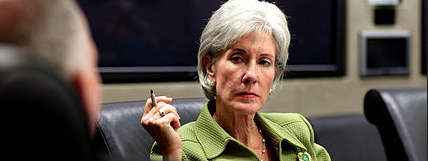
Don’t use 414(e) definition to protect ministries from contraceptives mandate
In its strong January 12th editorial saying the federal government should protect, rather than, suppress the religious freedom of the Little Sisters of the Poor in the context of the HHS contraceptives mandate, USA Today said there was a simple solution that the government ought to adopt. Rather than its current scheme that exempts only churches while requiring other religious nonprofits to facilitate contraceptives coverage they may object to (and providing no religious freedom protection whatsoever to businesses), USA Today said, the federal government should adopt a different, broader, religious exemption–the one in federal law that exempts religious organizations that share “religious bonds and convictions with a church.”
As the editorial notes, Notre Dame recommended this alternative definition of exempt organizations–churches and religious nonprofits with a tight connection with a church–when the administration was first deciding how to define exempt religious employers. Some other religious organizations, at that time and later, have recommended this broader definition, too–the “church plan” definition, also known as the Sec. 414(e) definition.
In fact, this alternative definition, while it would exempt more religious organizations from the contraceptives mandate, is itself wholly inadequate. Just as in the government’s current scheme, this alternative exemption would leave unprotected any religious-guided organization involved in commerce–and it would also leave outside the exemption many religious nonprofits.
That’s because many religious nonprofits do not have a tie to a church. Many claim a religious identity of their own by the religious standards they accept and by which they operate, without having any specific tie to a denomination. Others have a governance or doctrinal tie to more than one denomination. Yet others have a multi-faith or ecumenical set of convictions, or spring from an alliance of religious and secular bodies.
As Patrick Reilly of the Cardinal Newman Society has pointed out in protest against the use of the 414(e) definition, not even every Catholic organization would be exempt if the requirement is to have a specific governance or doctrinal tie to the Catholic hierarchy.
The administration should simply exempt every religious organization, church, non-profit, or for-profit, and find some other way to expand access to essential women’s preventive health services.
And anyone interested in the problems of the 414(e) definition should read Reilly’s comments on the topic.
